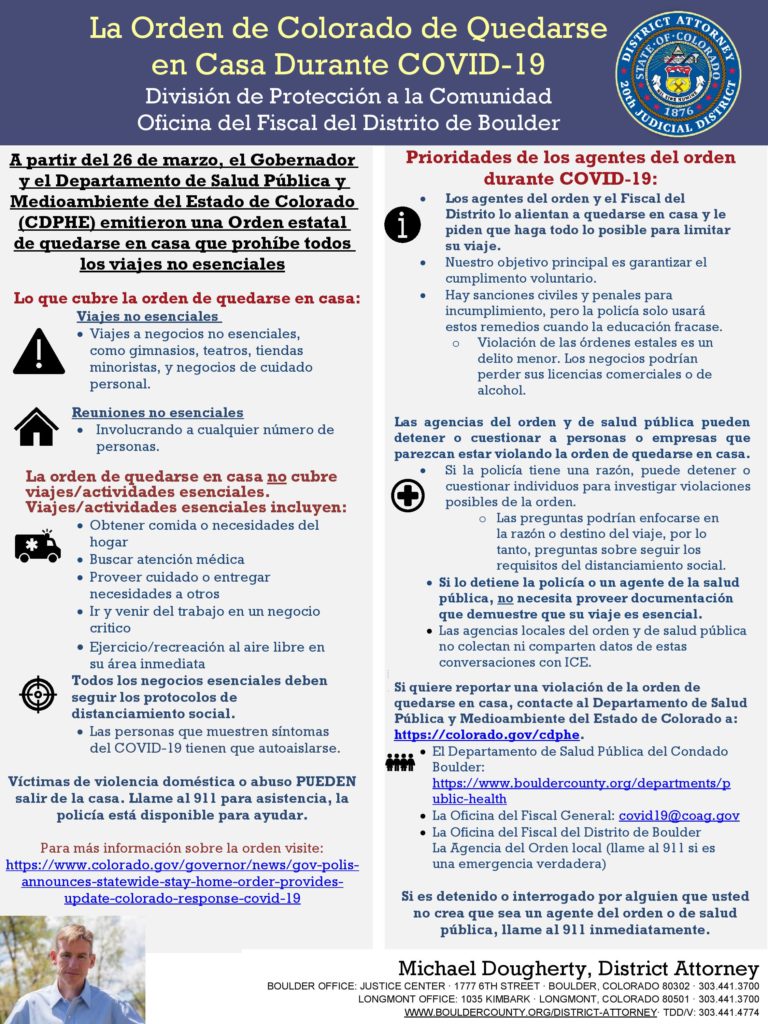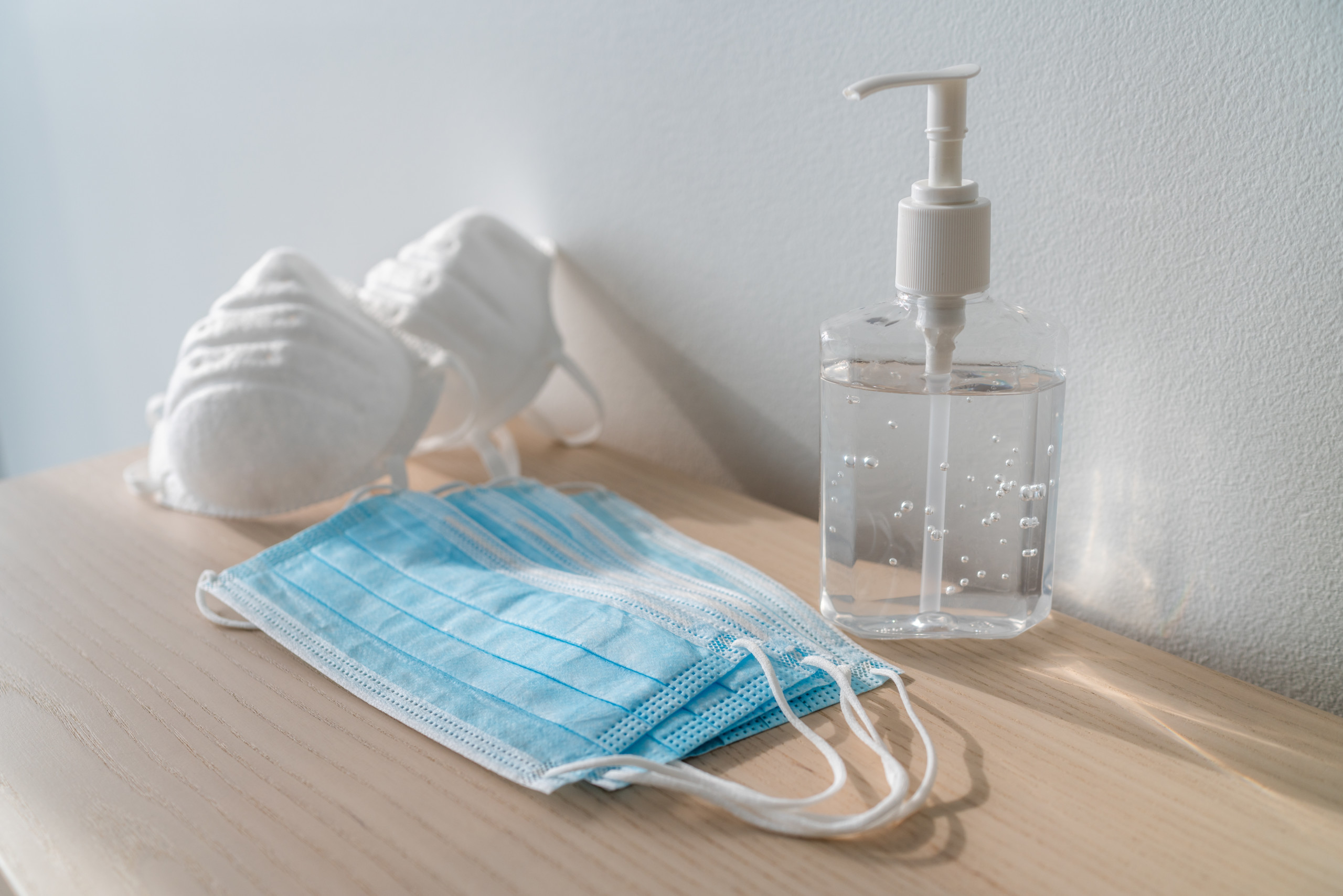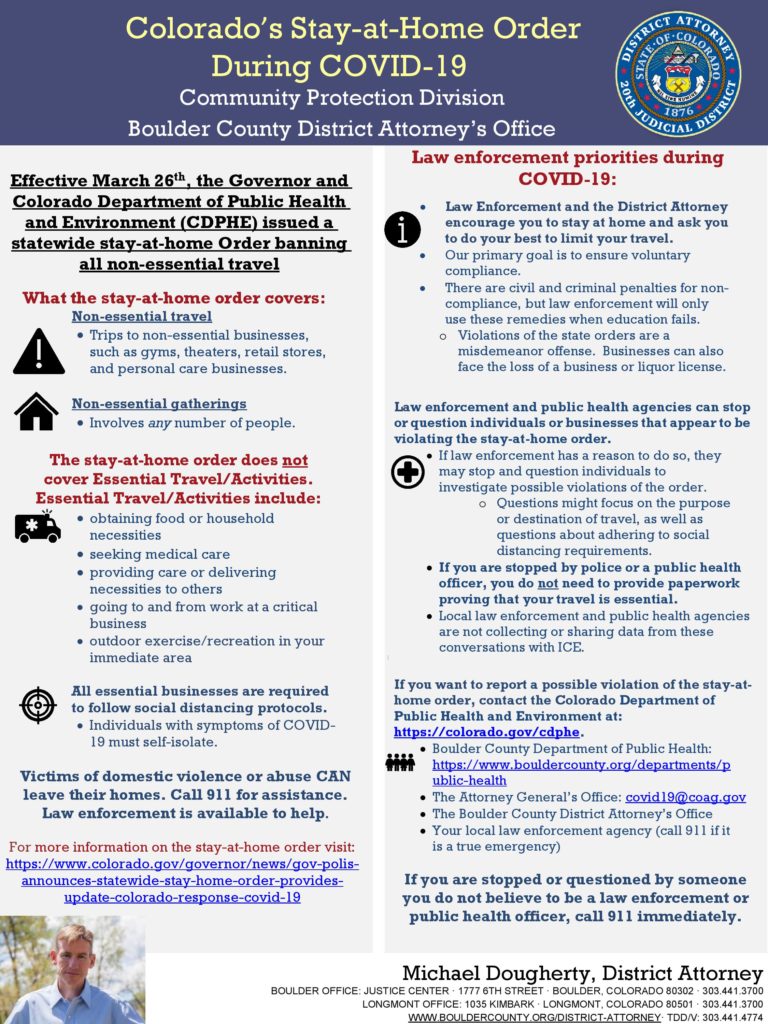This page will serve as a living resource for prosecutors and prosecution teams in the face of this unprecedented global event. Please bookmark this page as we will continue to add resources over the coming weeks.
APA Event Updates
DV CONFERENCE STATUS:
CANCELED
CONVICTION INTEGRITY SUMMIT STATUS:
CANCELED
CAPITAL LITIGATION REGIONAL CONFERENCE STATUS:
CANCELED
OTHER CONFERENCE UPDATES WILL BE POSTED TO THIS SITE.
We at APA are closely monitoring the status of coronavirus as several of our conferences around the country approach. We want to express strongly that we care about the safety and health of our attendees and are taking every precaution to ensure sanitary conditions at future conferences, including supplying hand sanitizer stations and eliminating the communal registration/check in process to minimize person-to-person contact. For the foreseeable future, our April and May conferences and meetings have been postponed or canceled due to the COVID-19 outbreak. We are keeping an eye on June and July scheduled events to determine whether they need to be rescheduled as well. Please bookmark this page to keep up to date on all events.
If you have any concerns or questions about any upcoming events, please reach out to us at info@apainc.org.
COVID-19 Resources
Links and Articles
“How Interagency Trust Can Foster and Optimal Jail Response to COVID-19” by Amelia Cramer
Other Resources
Webinar: Expanding Pretrial Release in the Age of COVID-19
For years, criminal justice reform efforts have focused on reducing pretrial detention, particularly detention resulting from an inability to pay cash bail. While many jurisdictions have reduced or eliminated the use of cash bail, particularly for low-level offenses, more than 700,000 people across the country are still detained without having been found guilty of any crime. As COVID-19 has closed or limited courts and postponed jury trials, pretrial detention has become less definite in length. At the same time, concern about the potential spread of COVID-19 in jails has pushed justice system actors to search for ways to reduce jail populations. This webinar will explore several efforts to seek expanded release for those detained pretrial in response to COVID-19.
To view this webinar and its resources, including sample motions and forms, please visit the American Bar Association’s website. You do not have to be a member to access these materials.
JOINT STATEMENT FROM PROSECUTORS, PUBLIC DEFENDERS, STATE GOVERNMENTS, CRIME VICTIMS, AND JUSTICE ADVOCATES ON SAFELY RELEASING PEOPLE FROM JAILS AMID COVID-19 CRISIS
“With COVID-19 continuing to spread across the country, cities and counties are rightly considering the health and safety of those held in jails, those who work in jails, and the broader community, and are choosing to safely release people to prevent further spread of the virus. Many people held in jails are still awaiting trial and have not yet been found guilty of a crime. Releasing people who pose little threat to their communities both benefits public health and allows people to stay with their jobs and families during these uncertain times.
“Safely reducing jail populations is not only the right thing to do in this unique moment, it’s something cities and counties have already proven possible using tested, data-driven strategies. These strategies aren’t radical, and most have broad support from stakeholders across local justice systems. Ending the misuse and overuse of jails is critical work that must continue – both in this current public health emergency and in the long-term.”
Association of Prosecuting Attorneys
Center for American Progress
The Council of State Governments Justice Center
National Center for Victims for Crime
National Legal Aid & Defender Association
R Street Institute
Multnomah County, OR
From Jeffrey A. Howes, First Assistant to the District Attorney:
- Start checking your teleworking capacity:
- Hardware – do the people that need them, have laptops or compatible home computers?
- Software – does your office software allow for people to access key programs remotely (i.e. case management; critical documents; email, etc)
- Keep CJIS compliance at the forefront of your planning
- For employees that will need to work in the office:
- Do you have sanitizing supplies?
- Can you limit public access to your office space?
- For example – we set up phone lines in our public hallways, allowing people to call in and speak directly to a receptionist or victim-advocate, but not enter the office physically
- If you conduct Grand Jury hearings – we have tried to move toward having all witnesses testify via a video-conferencing platform – we’re using GoToMeeting
- Start working with your partners to reduce local jail population NOW
- A document produced by our sheriff’s office shows that we’ve gone from 90% capacity on March 12, down to 68% yesterday
- Our sheriff has also reconfigured some of the jail space – allowing for new inmates to be quarantined in isolation (negative airflow) cells for their first 7 days in custody – as space allows, they’re hoping to lengthen that to 14 days.
- We’ve counseled our DDA’s to, quite frankly, increase their “risk tolerance” as it relates to pretrial release decisions.
King County, WA
From Dan Clark, Chief Criminal Deputy:
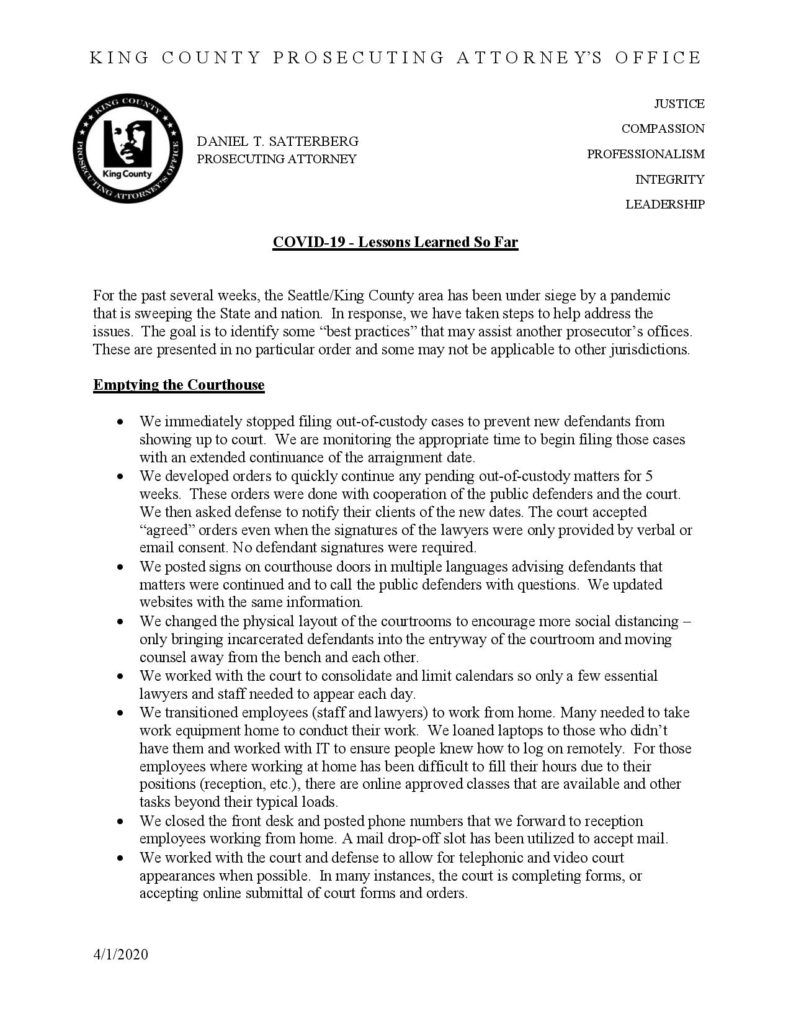
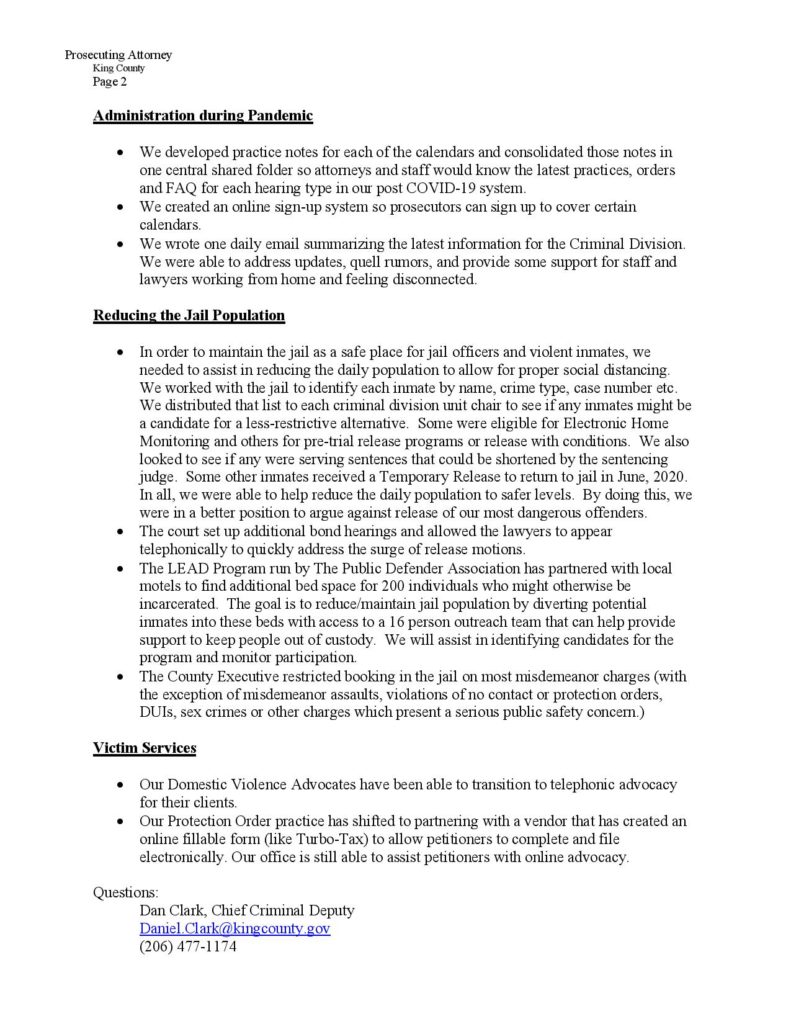
Colorado’s Stay-at-Home Order:
